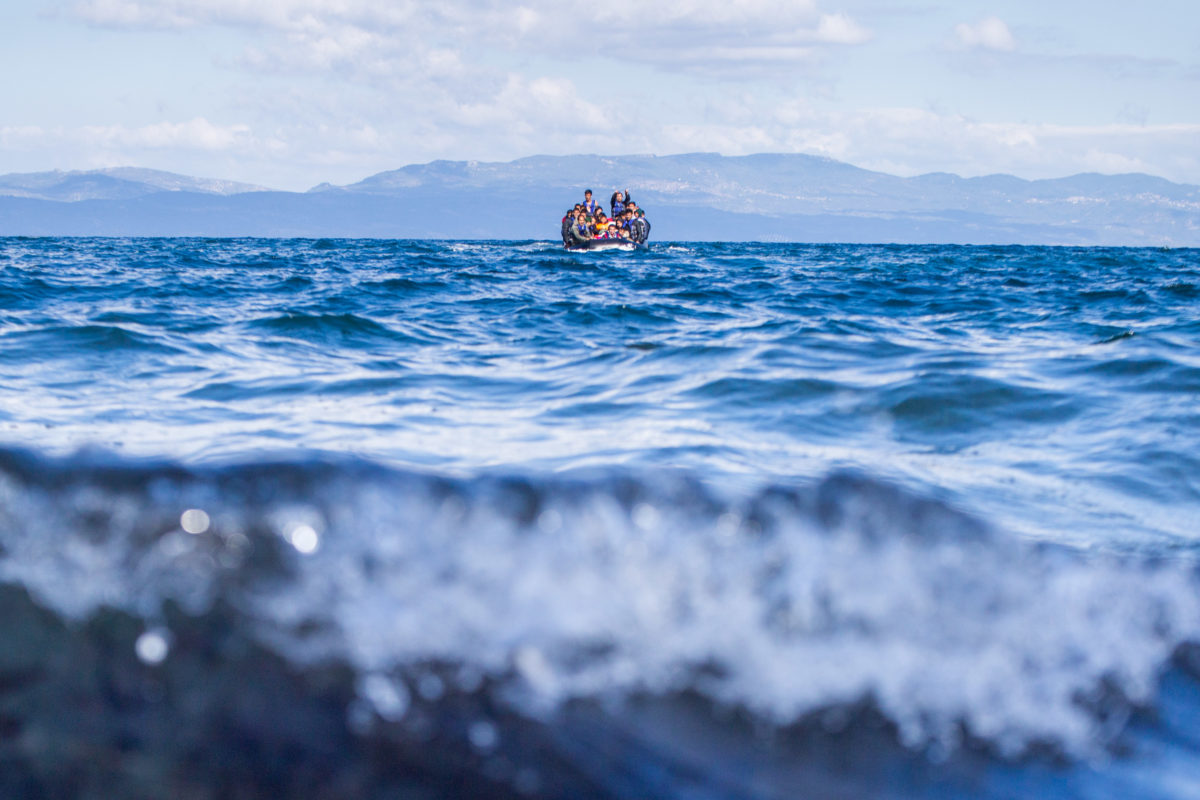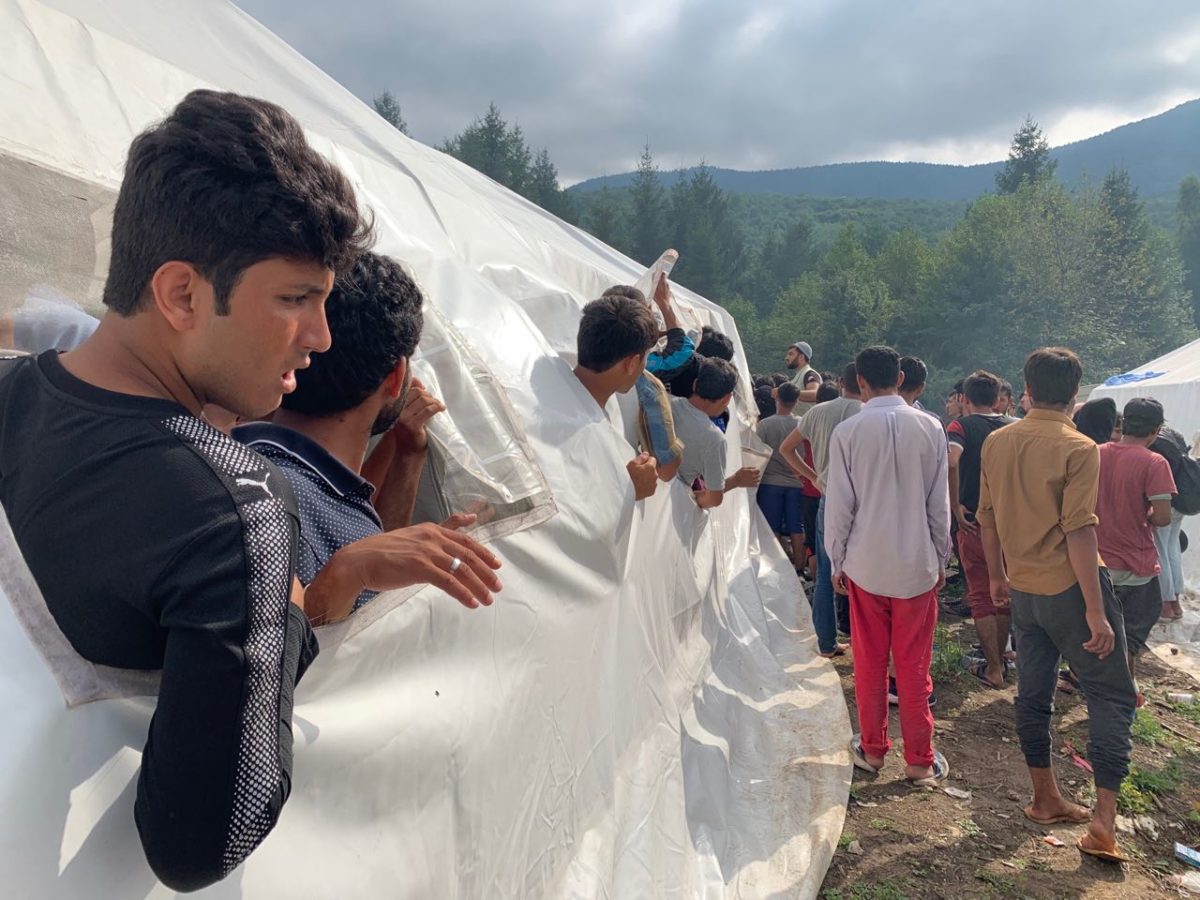The Croatian police have received official instructions for pushbacks. In the instruction, which has now become public, Croatian border guards are admonished not to allow themselves to be filmed during pushbacks in the future and to search the surroundings for hidden cameras before carrying out the pushbacks. The pushbacks themselves are to continue as usual. In its response, the Commission refuses to even acknowledge that Croatia systematically conducts pushbacks, despite the fact that they have been documented thousands of times and for over four years. The Commission also maintains its recommendation to allow Croatia to join the Schengen area, even though Croatia's practice at its external borders clearly violates the Schengen Borders Code. Where there are problems, the Commission simply declares itself not responsible. The Commission thus continues to turn a blind eye to the systematic human rights violations.
The whole question with answers in several languages can also be found at here
Our request
Subject: Pushbacks by the Croatian police
As the Croatian portal Index.hr reports, Croatian border guards receive service instructions for pushbacks. Thus, they follow orders and do not perform pushbacks at their own discretion, as the Croatian government has claimed so far. The instruction in question is a reaction to a case filed by the Mirror and the ARD video released in October in which Croatian border guards were filmed engaging in violent pushbacks. In response to the Commission's response to my inquiry regarding the videos, I have been waiting for almost four months.
In the instruction that has now become public, Croatian border guards are admonished not to allow themselves to be filmed during pushbacks in the future and to search the surrounding area for hidden cameras before conducting pushbacks. The pushbacks themselves are to continue as usual.
1. how does the Commission intend to investigate these state-ordered pushbacks, and what significance does it intend to attach to the results of this investigation with regard to the procedure for Croatia's accession to the Schengen area?
2. whether the Commission expects any changes to be made to the 'independent monitoring mechanism' at the external border, given that the Croatian Government is clearly not interested in investigating human rights violations for which it is itself responsible?
3. whether the Commission finds credible the statements by the Croatian Ministry of the Interior to the effect that the Croatian Government had nothing to do with the pushbacks and that it was a matter of misconduct on the part of individual officials?
Answer given by Ylva Johansson on behalf of the European Commission on 29.4.2022
1. the investigation of alleged criminal acts by national authorities is the responsibility of the Member States. The Commission has consistently asked the Croatian authorities to investigate alleged ill-treatment of migrants. Croatia's full accession to the Schengen area without internal border controls requires a unanimous Council decision, pending adoption. The JHA Council of 9-10 December 2021 concluded that Croatia fulfills the necessary conditions to apply all parts of the Schengen acquis. The Commission considers that Croatia has taken the necessary measures to ensure that all the Requirements for the application
of the Schengen acquis are fulfilled and remain fulfilled.
2 While the Commission services, in cooperation with the Croatian authorities, seek to ensure that Croatia's "independent monitoring mechanism" functions effectively, the establishment of the mechanism, and in particular its composition, remains in Croatian hands. Under the independent monitoring mechanism, a publicly available mid-year (interim) report was issued in December 2020. The Croatian authorities informed the Commission and the Parliament on how they are implementing the initial recommendations. The Advisory Committee – of which the Commission and relevant stakeholders are members (and which is not part of the Mechanism) – will make recommendations on how to improve the functioning of the Independent Monitoring Mechanism. As guardian of the Treaties, the Commission will continue to ensure that applicable EU law is respected.
3. the Commission is not in a position to assess the credibility of the remarks to which the Honourable Member refers. However, the Commission's position on fundamental rights is clear: any measures taken by Member States to prevent or deter unauthorised crossing of the EU's external borders must fully comply with relevant EU law, including in particular the Charter
of the Fundamental Rights of the European Union be in accordance with the law. Any inhuman or degrading treatment is unlawful. Therefore, any misconduct by individual border guards should be subject to investigation by the competent authorities and, if necessary, prosecution.

